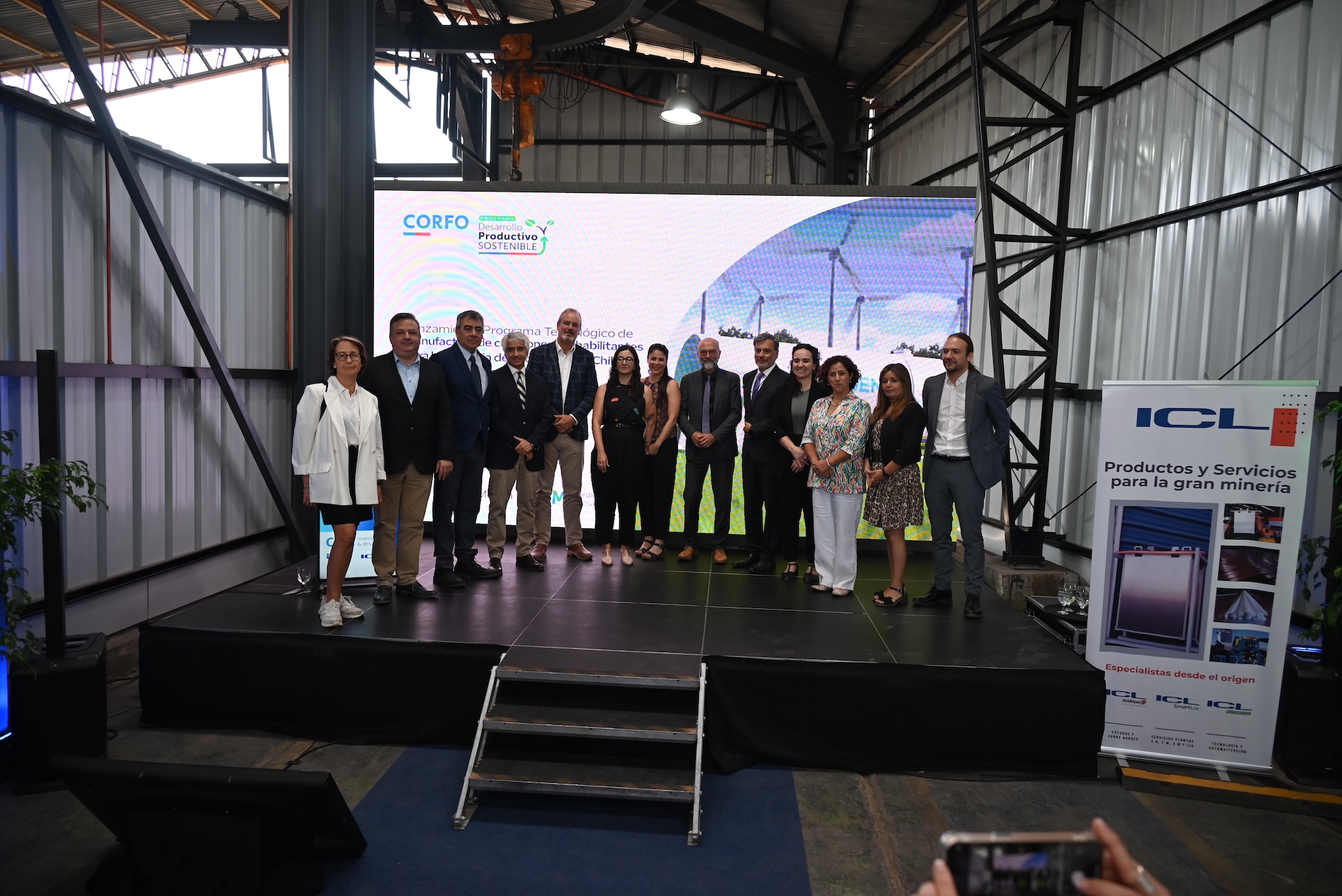Chile promotes projects for the production of green hydrogen and e-fuel buses
Two consortia of Chilean companies have been awarded the technological programs to support the development of the H2V industry, which includes a plant in Biobío for the production of e-Fuels.
Corfo announced the provision of funding to two projects for the promotion of the green hydrogen industry (H2V), which will mobilize private investment of more than $10.380 billion over a period of up to 5 years. The call for Corfo's Technological Programs (PTEC) seeks to support the development, technological adaptation and use of H2V in national companies, to enable the production of parts, pieces or other enabling components of this sector in national territory, as well as products derived from the adoption of this energy source.
The PTEC announced by Corfo on " Local Manufacturing Capabilities of Enabling Components for the Hydrogen Industry in Chile " and " Use and Adoption of Hydrogen in the Chilean Industry " will receive approximately $7.500 billion that will be used for the transfer, adoption and technological adaptation in the green hydrogen sector in two projects, one related to local production of cargo and passenger vehicles that will operate with H2V -in Santiago- and another linked to refining and blending of e-Fuels with a high potential for scaling in the Biobío region.
Awarded Companies
- PTEC on manufacturing for the H2V industry
The project HydroTech Industries of the ICL Group and the Mario Molina Nobel Prize Center, winner of the PTEC on manufacturing for the H2V industry, aims to develop an integrated industrial ecosystem for the production, conversion, and adoption of commercial vehicles to green hydrogen and its components in Chile, for which it will enable an advanced industrial plant in Maipu, along with the establishment of a green hydrogen hub in the Valparaíso region and the design of innovative solutions for the conversion of heavy trucks.

The program includes the co-executing companies QEV Technologies, South Energy Consulting Spa and EVARM, in addition to the affiliates of CODELCO, Puerto San Antonio, EPV / Valparaíso Port Company and PVSA / Puerto Ventanas. Its implementation will take place in the Metropolitan and Coquimbo regions, it will last 48 months and involves a total public-private investment of $5.982 billion.
Pedro Castillo, director of the ICL Group that will provide the components for the freight and passenger vehicles, commented that the financing from Corfo "is not a small push, it's a significant support for this pioneering project in Chile that combines the opportunity to accelerate the adoption of green hydrogen as an energy source".
These vehicles, which will be produced and assembled in the Maipú commune, already have the commitment of companies such as Codelco for their acquisition once they are in a commercial phase, by which time there is expected to be a production of 50 buses and trucks per month.
- PTEC on use and adoption of hydrogen
In the PTEC on hydrogen use and adoption, the awardee is the SYNFUELS BIOBIO project led by the Bioforest Forestry Research company, which includes co-executors and stakeholders such as COPEC, Ineratec GmbH, Abastible, Sumitomo Chile, the Energy Center-University of the Holy Conception, Anglo American Sur and Forestal Arauco among others. It will last up to 5 years and will operate in the Biobío and Metropolitan regions with a total investment of $11,399,342,000.
The objective of this PTEC will be to validate CO2 capture technologies emitted by the forestry industry through a pilot plant that will be able to produce e-Fuels. This plant, which will be located in Biobío, will carry out the refining process and blending of green fuel with high commercial scaling potential.
The Undersecretary of Economy and Small Enterprises, Javiera Petersen, highlighted that this instrument is part of a government agenda to revitalize the Chilean economy, and is already beginning to bear fruit after three years of the current administration. She explained that the government has been working on three initiatives to leave our country better positioned for future challenges, such as the structural reform to the sectoral permits system, the creation of the Financing and Investment Agency for Development (AFIDE), and the Sustainable Productive Development Program (DPS) which encompasses the announcement and is led by the Ministry of Economy with resources from Corfo.
"Thanks to this initiative, we have been able to allocate more than $350 billion over these three years, supporting more than 600 companies and more than 250 technical teams to more synergistically link the development of knowledge with the productive technological challenges our country has," the undersecretary stated.
Promotion of H2V
The Executive Vice President of Corfo, José Miguel Benavente, emphasized that the corporation implemented, during this period, an industrial policy to support the entire value chain of green hydrogen, which is complemented with other instruments aimed at developing local manufacturing capabilities of parts and components needed to produce hydrogen in Chile. He pointed out that alongside the vehicle production and assembly project that will run on hydrogen, the initiative funded in the Biobío region will allow the commercial production of synthetic fuels based on hydrogen that could position Chile as a key player in this productive sector in the coming years.
"I give it to you in writing: Chile will be an exporter of synthetic fuels in the future based on green hydrogen," Benavente stated, while explaining that the vision of Corfo and the Ministry of Economy is to take advantage of the opportunities offered by Chile's comparative advantages in terms of access to cheap renewable energy, "where we have room to generate productive chains."




